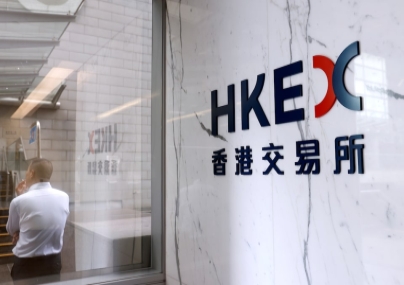
As China’s revolutionary new Internet court marks one year of operation, the authorities are planning two more - in Beijing and Guangzhou.
After the Hangzhou Internet Court caught international attention last year for being the first-ever court with an online trial system in the world, the Chinese authorities are looking to establish similar internet courts in both Beijing and Guangzhou.
Established in August 2017, the litigation platform of Hangzhou Internet Court has first-instance jurisdiction in Hangzhou municipality, dedicated to cases concerning six main types of internet disputes: contract disputes arising from online shopping services and small loans, disputes concerning internet copyright ownership and infringement, disputes concerning personality rights infringement online, product liability claims for goods purchased online, domain name disputes, and administrative disputes arising from internet administration.
Yang Peiming, partner at Llinks Law Offices, says that the court allows for more professional and efficient trials for internet-related cases.
“Different from conventional litigation courts that take paper evidence, internet conflicts usually happen online so the evidence usually exist in the form of data,” says Yang. “Since digital data is instant, intangible and modifiable, an internet court digging into the evidence for verification is particularly important.”
What sets the Hangzhou Internet Court apart from a conventional court is its online litigation platform, on which people can sue by registering with their phone numbers. The system will have access to the user’s identity, online transaction records and other kinds of personal data, keeping the whole process of registering for a new case under five minutes.
After the case is established, the accused will receive a notification and he or she can log in on the platform for a rebuttal. Trials and verdict have shifted from face-to-face in a courtroom to online video chats, which significantly shortened the trial duration saving administration costs. Users of the system can even pay fees via e-wallets including Alipay.
“As the internet-related disputes are becoming increasingly tricky, the cases treated in the Hangzhou Internet Court appear to be more complex,” says Jet Deng, senior partner at Dentons.
Zheng Wei, partner at Anli Partners, and Bai Xiaoli from Anli’s Internet litigation team, echo Deng’s comment.
“Internet-related cases are much more complex than the usual civil and commercial cases - besides laws and regulations, the judges also need to be familiar with professional knowledge including that of intellectual property, computer and network technology and Internet communication,” said Zheng and Bai. “The strength of a more focused Internet court is accentuated when dealing with cases concerning high technologies such as blockchain, digital evidence, big data, virtual properties, etc."
MORE COURTS TO COME
The authorities announced plans in July to set up Internet courts in Beijing and Guangzhou, but didn’t specify when they would be launched. In August, the Standing Committee of Beijing Municipal People’s Congress announced the appointment of the President, Vice Presidents and 40 judges for the Beijing Internet court.
“The new courts in Beijing and Guangzhou will be established based on the experience from operating the pilot Hangzhou Internet Court. We trust that the scope of jurisdiction will be well thought through and the rules of litigation will also be more comprehensive,” says Yang.
“Having accumulated the experience from handling cases at the Hangzhou court, the judges will have improved professional standards and overall quality,” he adds. “The exchanges between the courts will also improve the existing system.”
Deng says that Beijing and Hangzhou are not randomly chosen to set up these Internet courts.
“Beijing is China’s most developed city when it comes to Internet operations. And Shenzhen, a major city in the Guangdong province, is also a hub of internet companies,” he notes.
However, Deng remains sceptical about the necessity of the new courts. “Although the establishment of the Internet courts will increase the efficiency and lower the cost to certain extent for certain companies, the necessity of setting up a court tailored for a certain industry or sector remains contentious.”
He also says that the Hangzhou court has handled many cases arising from Alibaba Group, so the new courts will likely to receive cases from a variety of Internet giants as well.
As of end of June 2018, there were a total of 802 million Chinese netizens, up 3.8 percent from end of last year. More than 57 percent of the people in China have access to the Internet, according to a report from the China Internet Network Information Centre.
To contact the editorial team, please email ALBEditor@thomsonreuters.com.



